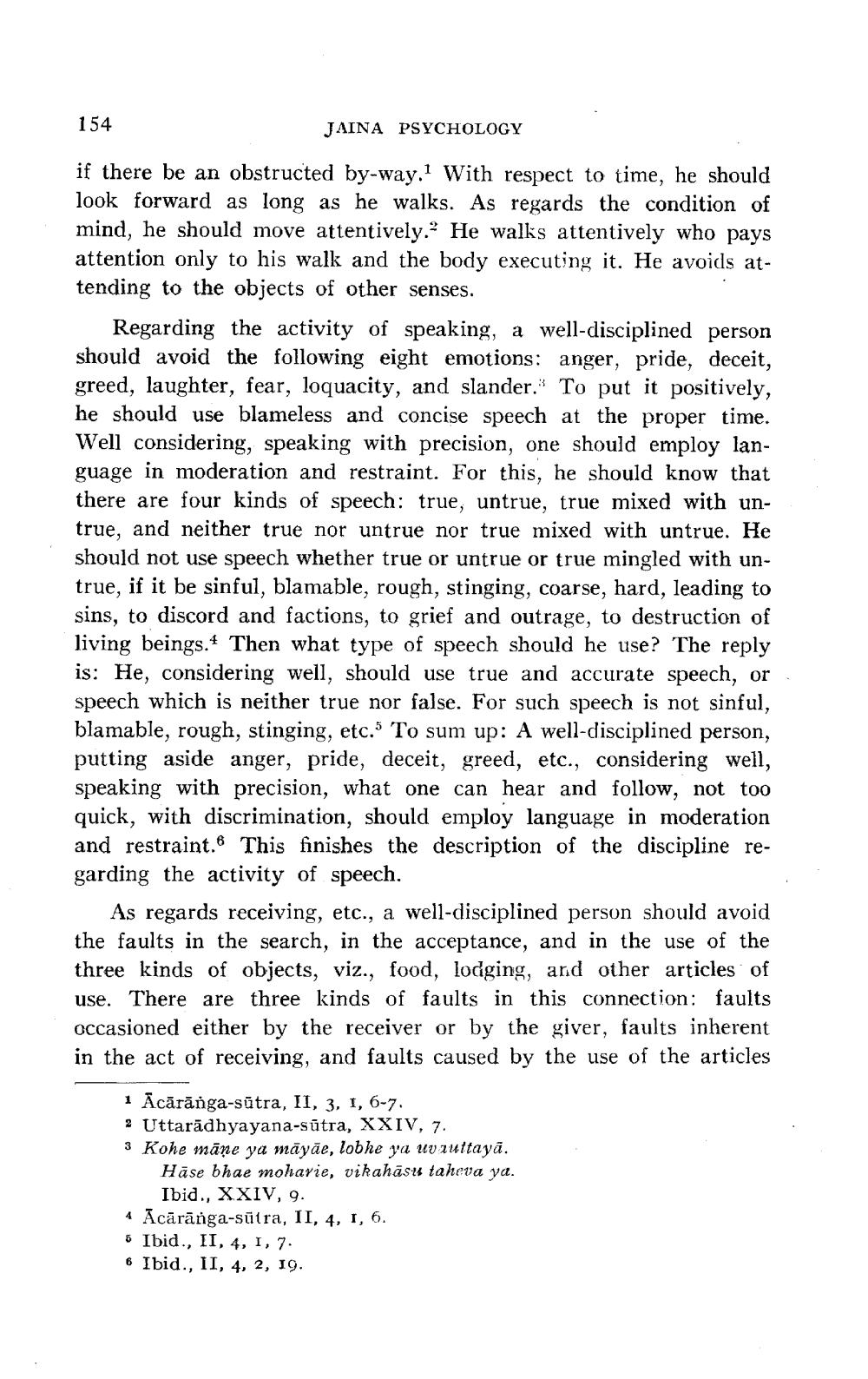________________
154
JAINA PSYCHOLOGY
if there be an obstructed by-way. With respect to time, he should look forward as long as he walks. As regards the condition of mind, he should move attentively.” He walks attentively who pays attention only to his walk and the body executing it. He avoids attending to the objects of other senses.
Regarding the activity of speaking, a well-disciplined person should avoid the following eight emotions: anger, pride, deceit, greed, laughter, fear, loquacity, and slander.' To put it positively, he should use blameless and concise speech at the proper time.
ell considering, speaking with precision, one should employ language in moderation and restraint. For this, he should know that there are four kinds of speech: true, untrue, true mixed with untrue, and neither true nor untrue nor true mixed with untrue. He should not use speech whether true or untrue or true mingled with untrue, if it be sinful, blamable, rough, stinging, coarse, hard, leading to sins, to discord and factions, to grief and outrage, to destruction of living beings.4 Then what type of speech should he use? The reply is: He, considering well, should use true and accurate speech, or speech which is neither true nor false. For such speech is not sinful, blamable, rough, stinging, etc. To sum up: A well-disciplined person, putting aside anger, pride, deceit, greed, etc., considering well, speaking with precision, what one can hear and follow, not too quick, with discrimination, should employ language in moderation and restraint. This finishes the description of the discipline regarding the activity of speech.
As regards receiving, etc., a well-disciplined person should avoid the faults in the search, in the acceptance, and in the use of the three kinds of objects, viz., food, lodging, and other articles of use. There are three kinds of faults in this connection: faults occasioned either by the receiver or by the giver, faults inherent in the act of receiving, and faults caused by the use of the articles
1 Ācārānga-sūtra, II, 3, 1, 6-7. ? Uttarādhyayana-sūtra, XXIV, 7. 3 Kohe māne ya māyāe, lobhe ya uvauttayā.
Hāse bhae mohavie, vikahāsu taheva ya.
Ibid., XXIV, 9. 4 Ācārānga-sūtra, II, 4, 1, 6. 5 Ibid., II, 4, 1, 7. 6 Ibid., II, 4, 2, 19.




